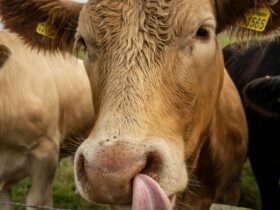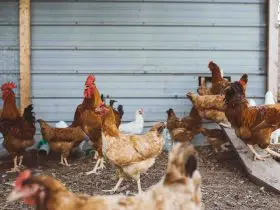How to remove smell from goat meat
How to remove smell from goat meat? The question of how to get rid of the smell of pork, chicken, and other meats does not go away simply because you buy them from reputable sellers and are confident in their quality. Meat will have no effect on you. In some cases, incorrect pressing can be enough to produce a horrible golden variety before the meat is put in the cooler. Also, some kinds of meat, like hog, sheep, and goat meat, have a particular bad smell, even when they are freshest.


If you smell something “dubious” about the meat, don’t throw it away right away. There are occasionally valuable opportunities to safeguard the product and enhance its flavor using a variety of improvised methods.
For dinner, Americans consume a lot of chicken, pork, and meat. The market chiefs are more well-known than the sheep, venison, and other meats. One of the amazing options is goat meat, which can typically be found in ethnic food products and business sectors. It is a svelte, flavorful, and solid option, despite the fact that it can occasionally have an unmistakably unpleasant smell. Goats are prized for their milk and meat in many parts of the world due to their strength and, like swans, their ability to eat anywhere. Like sheep or game meat, goats can be restrained using a variety of notable cooking techniques.
At the grocery store, it will typically be labeled “chevon,” which is the French word for mature goat meat, or “cabrito,” “capretto,” or “kid.” Since solid scents are a sign of male sexual development, they rarely occur in young children. Buck goats that have not been emasculated have significant areas of strength for a flavor that can be shared with other animals in a group. Expert farmers keep their animals apart to preserve the flavor, but if you buy your goat in secret, that probably won’t be the case.
Even though goat meat is thinner than hamburger and chicken, a significant portion of its muscle bundles are still protected by fat layers, similar to that of other animals. The fat will contain the majority of the disgusting flavor in a goat that smells musky. Cut out as much surface fat as you can before cooking as well as any large fat creases that can be easily removed with a sharp knife. If it’s fundamental, tie the scales back together with cotton butcher’s twine. For an impartial character, many recipes suggest substituting thin sheets of pork fat for goat meat, unless you swear off pork for strict or social reasons.


You can also lessen the goat’s flavor by dousing it for a relatively short time after the fat is removed. A straightforward option is to absorb the goat by dissolving some coarse or fit salt in cold water. The meat is mild and reminiscent of veal because the salt helps eliminate the flavor and smell. Using milk or buttermilk to absorb the meat for a few hours yields comparable results; Additionally, buttermilk softens tough cuts. For more complicated recipes, you should use a marinade made with wine because it doesn’t leave a bad taste or smell and has better flavors of its own.
If the smell of the meat has been effectively controlled, the basic and effective cooking methods of barbecuing and skillet singing delicate goat cuts work well. You will need to cover the meat with sauces or flavors if, despite your best efforts, it actually has areas of strength for flavor and smell. In the cuisines of the Middle East, the Caribbean, India, Africa, and Mexico, the smokiness of the goat is just one of many strong flavors that are incorporated into goat dishes. Because of their potent flavor, Caribbean cooks prefer old bucks, making musky examples the best choice for island-style jolted or curried goat.
















Hello!! Welcome to Anim Farm